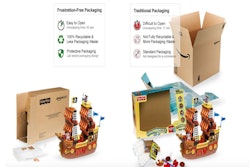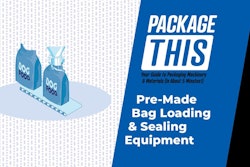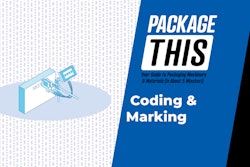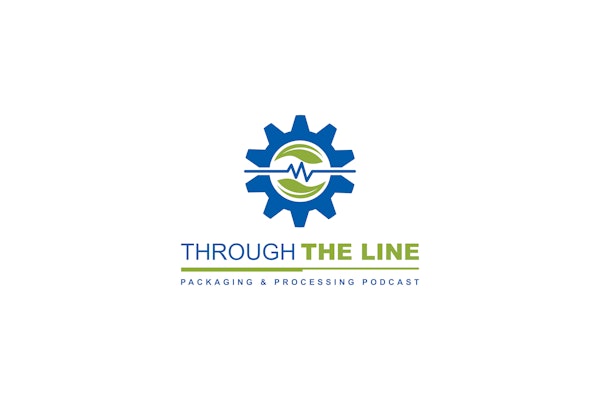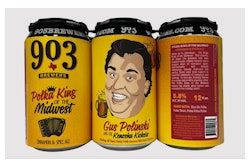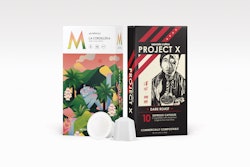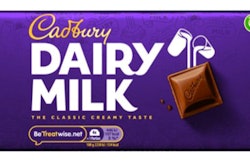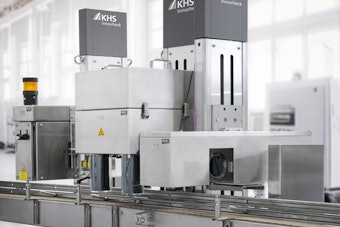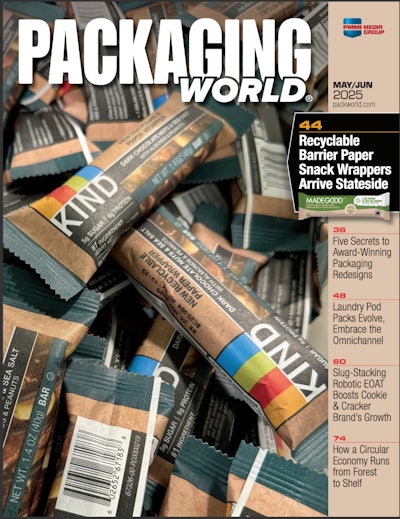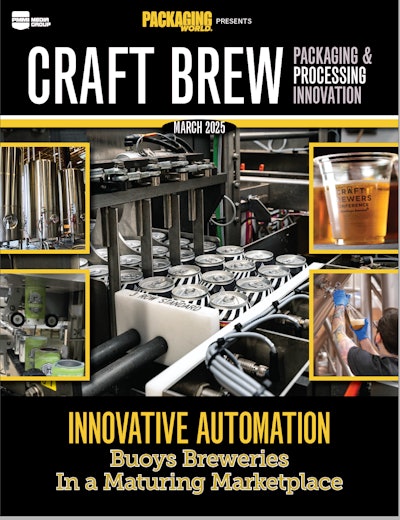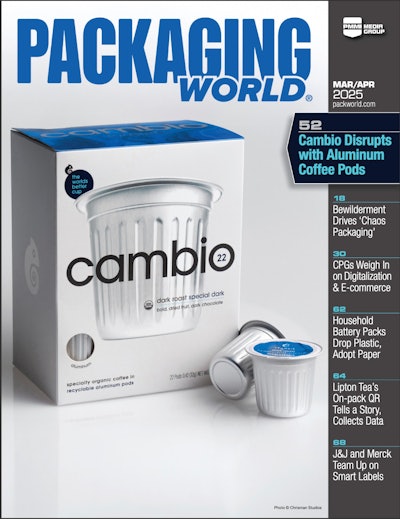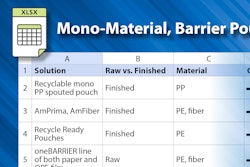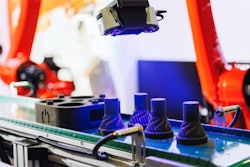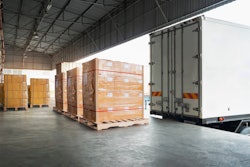
PepsiCo Recycling was formed in 2010 to educate and engage consumers around recycling as well as help facilitate greater access to recycling. Here, Tom Mooradian, Manager, Environmental Sustainability at PepsiCo., describes the program and the progress it has made toward increasing recycling rates.
Packaging World:
What is your role at PepsiCo?
Tom Mooradian:
I occupy a multidisciplinary role that allows me to tap into my creative side and my technical side. I spend the majority of my time working on PepsiCo Recycling programs, which engage directly with our consumers to educate and inspire them to recycle. I also spend a portion of my time identifying and managing capital projects within our manufacturing network to help conserve resources such as electricity. I love the role as it not only enables me to leverage my background as a packaging engineer and capital project manager, but also allows me to work on exciting new things, like trying to figure out the best ways to motivate our broad consumer base to recycle.
How important to PepsiCo’s sustainability agenda are the use of recyclable materials for its packaging?
PepsiCo is focused on delivering sustainable, long-term growth while leaving a positive imprint on society and the environment, part of what we call “Performance with Purpose.” This agenda comprises three focus areas: Planet, Products, and People. The Planet plank is PepsiCo’s commitment to reduce its environmental impact while growing its business and helping to meet the food, beverage, and natural resource needs of the changing world. By 2025, PepsiCo aims to design 100% of our packaging to be recyclable, compostable, or biodegradable, increase recycled materials in our plastic packaging, reduce packaging’s carbon impact, and, in partnership with the PepsiCo Foundation, work to increase recycling rates.
How important to the agenda is educating consumers around recycling?
Educating and engaging consumers about recycling is critical, and that is exactly what PepsiCo Recycling was designed to do. We introduced the PepsiCo Recycling initiative in 2010 and have continued to scale it up ever since. PepsiCo Recycling programs bring recycling solutions to colleges and universities, K-12 schools, high-traffic retail locations, professional sports facilities, events, and other organizations across the U.S. with the goal of increasing beverage container recycling rates. We educate and inspire consumers through the belief that simple acts lead to a big impact. We know that every bottle and can recycled helps make communities and the world a cleaner, more sustainable place.
Our Recycle Rally program, geared toward K-12 schools, aims to teach students that recycling can be easy, fun, and rewarding. Schools can track progress through the program, creating friendly competition between schools and driving sustainable behavior among students, staff, and faculty. We also equip teachers with resources, including lessons, activities, fun facts, downloadable posters, and fresh ideas on our website and Pinterest page to help keep students of all ages interested. When students and faculty recycle with PepsiCo, their aluminum cans can be put back on the shelf in as little as 60 days, helping close the loop on their packaging one can (or bottle) at a time.
Another PepsiCo Recycling program is the Zero Impact Fund, which enables eligible colleges or universities to apply for up to $10,000 to create or strengthen sustainability initiatives on campus. The fund provides support for a range of innovative ideas that represent simple, accessible programs developed by students, faculty, and staff at the university, and it awards funding to programs that aim to make environmental, economic, and social impacts on campus that will help schools reach their sustainability goals.
What success have you seen with these programs?
Since 2010, PepsiCo Recycling has helped recycle approximately 179 million bottles and cans. In 2016, through the Zero Impact Fund, PepsiCo awarded grants to eight schools for projects that streamlined recycling on campuses and helped fund zero-waste initiatives, bike sharing programs, and more.
What do you see as some of the greatest hurdles to increasing the collection rates of packaging materials, in particular PET, in the U.S.?
We review the barriers to recycling on a regular basis, and what we continue to see is most people do intend to recycle when recycling is available, but they don’t always find a convenient solution when they need to dispose of their packaging. Whether at home, particularly in multi-family homes, or on-the-go, it’s not always easy to find access to recycling bins. To increase access to recycling and remove some of these barriers, PepsiCo Recycling partners with retailers and communities to make recycling more accessible and convenient on-the-go and at home. PepsiCo is also a founding member of the Closed Loop Fund, which provides no- or low-cost loans to municipalities to implement curbside recycling programs to help people incorporate recycling into their everyday lives.
Additionally, although we know most consumers do see value in recycling and intend to recycle when possible, there is still a need to educate them about the importance of recycling to bring them along to a point where they will recycle on a more consistent basis. We want to convert those part-time recyclers into full-time recyclers. Some need to know that every bottle and every can really does make a difference. Others are motivated when we take a step beyond the standard “good for the planet” rationale and share other forms of rationale, such as explaining how recycling supports domestic economic growth. Others might actually want tips on how to plan or adapt to certain occasions when recycling might not be readily available, so they can always find a practical way to recycle. Ultimately, our goal is to encourage consumers to recycle so consistently that the behavior becomes the norm and that throwing a bottle or can into the trash seems unthinkable.
What is the danger for CPGs if they do not have a sustainability strategy?
At PepsiCo we realize companies’ social and environmental practices are more accessible and increasingly sought-after than ever before. We know consumers do their homework and want to see companies deliver meaningful results. Our Performance with Purpose agenda addresses those needs head-on by emphasizing the importance of leaving a positive imprint on society, setting ambitious goals, and mapping out our pathways to achieve them. Now more than ever, it is crucial for CPGs to establish a stance on sustainability and strive to meet sustainable, authentic goals or risk losing credibility with core consumers.



